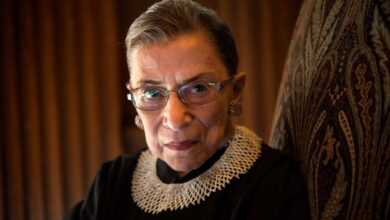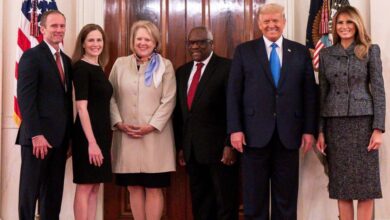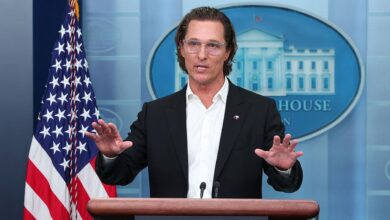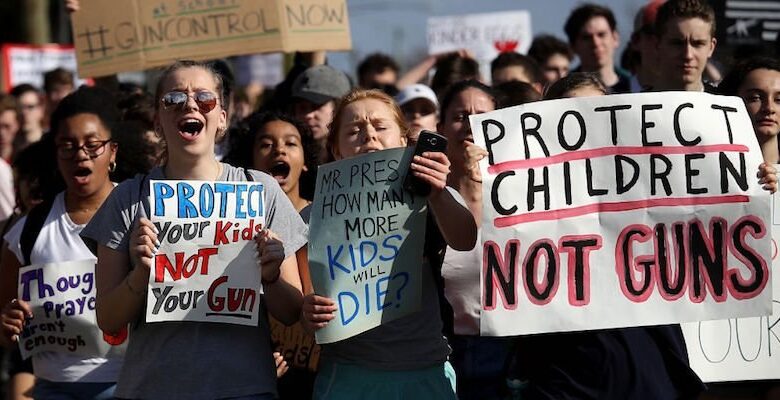
Blue States Gun Control Efforts Hinge on the Supreme Court
Blue states gun control efforts hinge on the supreme court – The Supreme Court’s rulings on gun control have long been a point of contention in American politics, and this debate is only intensifying as blue states push for stricter gun laws. The landmark decisions of -District of Columbia v. Heller* (2008) and -McDonald v.
City of Chicago* (2010) established the individual right to bear arms, significantly impacting the legal landscape for gun control measures. This has led to a complex legal battle, with blue states seeking to implement various gun control measures while facing legal challenges and public opinion divisions.
The ongoing debate over the Second Amendment and its interpretation in relation to gun control lies at the heart of this issue. While blue states strive to enact measures aimed at reducing gun violence, their efforts are often met with legal challenges based on the Supreme Court’s rulings.
This creates a dynamic situation where the future of gun control in America hinges on the Supreme Court’s interpretation of the Second Amendment and its willingness to uphold or overturn existing precedents.
The Supreme Court’s Impact on Gun Control
The Supreme Court of the United States has played a pivotal role in shaping the legal landscape surrounding gun control in the United States. Its rulings have significantly influenced the interpretation of the Second Amendment and have had a profound impact on the ability of states and local governments to regulate firearms.
Historical Context of Supreme Court Rulings on Gun Control
The Supreme Court’s involvement in gun control cases has a long and complex history. For decades, the Court largely upheld the federal government’s power to regulate firearms, while leaving states and local governments with considerable leeway to enact their own gun control measures.
This approach was largely shaped by the Court’s understanding of the Second Amendment, which was generally viewed as protecting the right of individuals to own guns for self-defense, but not as an absolute right to own any type of firearm.
The Significance of District of Columbia v. Heller (2008) and McDonald v. City of Chicago (2010)
The landmark decisions of
- District of Columbia v. Heller* (2008) and
- McDonald v. City of Chicago* (2010) fundamentally shifted the Court’s interpretation of the Second Amendment. In
- Heller*, the Court held that the Second Amendment protects an individual’s right to possess a firearm unconnected with service in a militia, and to use that arm for traditionally lawful purposes, such as self-defense within the home. This decision marked a significant departure from previous rulings, which had largely focused on the collective right of states to maintain militias.
The
- McDonald* decision extended the individual right to bear arms recognized in
- Heller* to state and local governments, effectively barring them from enacting strict gun control measures that would infringe upon this right. These rulings have had a profound impact on the legal landscape for gun control laws, as they have empowered gun rights advocates and limited the ability of states and local governments to regulate firearms.
Analysis of the Supreme Court’s Rulings on Gun Control Laws
The Supreme Court’s decisions in
- Heller* and
- McDonald* have significantly shaped the legal landscape for gun control laws, creating a new framework for interpreting the Second Amendment and limiting the ability of states and local governments to regulate firearms.
* Individual Right to Bear Arms:The
- Heller* and
- McDonald* decisions established an individual right to bear arms for self-defense, regardless of militia service. This ruling has been cited by gun rights advocates to challenge various gun control measures, arguing that they violate this fundamental right.
Scope of the Second Amendment
The Court’s rulings have left open the question of the scope of the Second Amendment and its application to different types of firearms and gun control measures. This has led to ongoing legal battles over the constitutionality of various gun control laws, such as bans on assault weapons and high-capacity magazines.
Balancing Gun Rights and Public Safety
The Supreme Court has recognized the importance of balancing the Second Amendment right to bear arms with the government’s interest in protecting public safety. This balancing test has been used to uphold some gun control measures, such as background checks and bans on firearms for certain individuals.
Ongoing Debate Surrounding the Second Amendment and its Interpretation in Relation to Gun Control, Blue states gun control efforts hinge on the supreme court
The Supreme Court’s rulings in
- Heller* and
- McDonald* have ignited an ongoing debate surrounding the Second Amendment and its interpretation in relation to gun control. This debate is characterized by fundamental disagreements about the scope of the Second Amendment right, the balance between gun rights and public safety, and the role of the government in regulating firearms.
* Interpretation of the Second Amendment:There is a significant disagreement among legal scholars and policymakers about the meaning and scope of the Second Amendment. Some argue that it protects an absolute right to own any type of firearm, while others contend that it is subject to reasonable restrictions in the interest of public safety.
Balancing Gun Rights and Public Safety
The balancing of gun rights and public safety is a complex and controversial issue. Gun rights advocates argue that the Second Amendment protects an individual’s right to own firearms for self-defense and that any restrictions on this right are unconstitutional.
Public safety advocates argue that the government has a responsibility to protect its citizens from gun violence and that reasonable gun control measures are necessary to achieve this goal.
Role of the Government in Regulating Firearms
There is a significant debate about the role of the government in regulating firearms. Some argue that the government should have a limited role in regulating firearms, while others believe that the government has a responsibility to enact strong gun control measures to reduce gun violence.
Summary: Blue States Gun Control Efforts Hinge On The Supreme Court
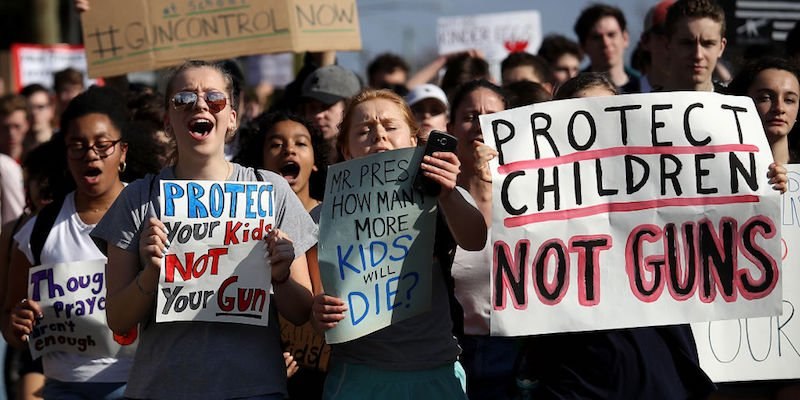
The future of gun control in blue states is uncertain, as the Supreme Court’s stance on the Second Amendment continues to evolve. The ongoing debate surrounding gun control is a complex one, involving legal challenges, public opinion, and political polarization.
While blue states face challenges in implementing stricter gun control measures, they are likely to continue pursuing these efforts, seeking to find a balance between public safety and individual rights. The Supreme Court’s role in shaping the legal landscape for gun control will remain crucial in the coming years, with its decisions having a significant impact on the ability of blue states to enact and enforce their gun control laws.
The Supreme Court’s upcoming decisions on gun control will have a major impact on blue states, many of whom are pushing for stricter gun laws. Meanwhile, in a completely different sphere, the University of Michigan has chosen Santa Ono as its new president, just months after the controversial ousting of Mark Schlissel.
This appointment comes at a time when the university is facing numerous challenges, including budget cuts and declining enrollment. As the Supreme Court grapples with the Second Amendment, the future of gun control in blue states hangs in the balance.
The future of gun control in blue states hangs precariously on the Supreme Court’s decisions, which could have a significant impact on public safety and the lives of countless citizens. It’s a complex issue, and while we grapple with the legal ramifications, it’s worth remembering that science says the more of this you give the happier youll be hint its not money , and that might be a more effective approach to tackling the root causes of gun violence.
Ultimately, the Supreme Court’s rulings will shape the landscape of gun control, but we must also consider the broader societal factors that contribute to this issue.
The Supreme Court’s decisions on gun control are shaping the future of gun laws in blue states, with many states scrambling to find ways to implement stricter regulations within the confines of the Court’s rulings. It’s a complex issue, and it’s easy to get bogged down in the legal jargon, but the reality is that these decisions have real-world consequences.
It’s a similar situation with climate education, where the need for action is clear, but the path forward is less so. A recent article, nice to have or must have a climate education venture puts the case for corporate buy in , argues that corporate buy-in is essential to making climate education a reality.
Just like gun control, climate change is an issue that requires both political and societal will to address effectively.

